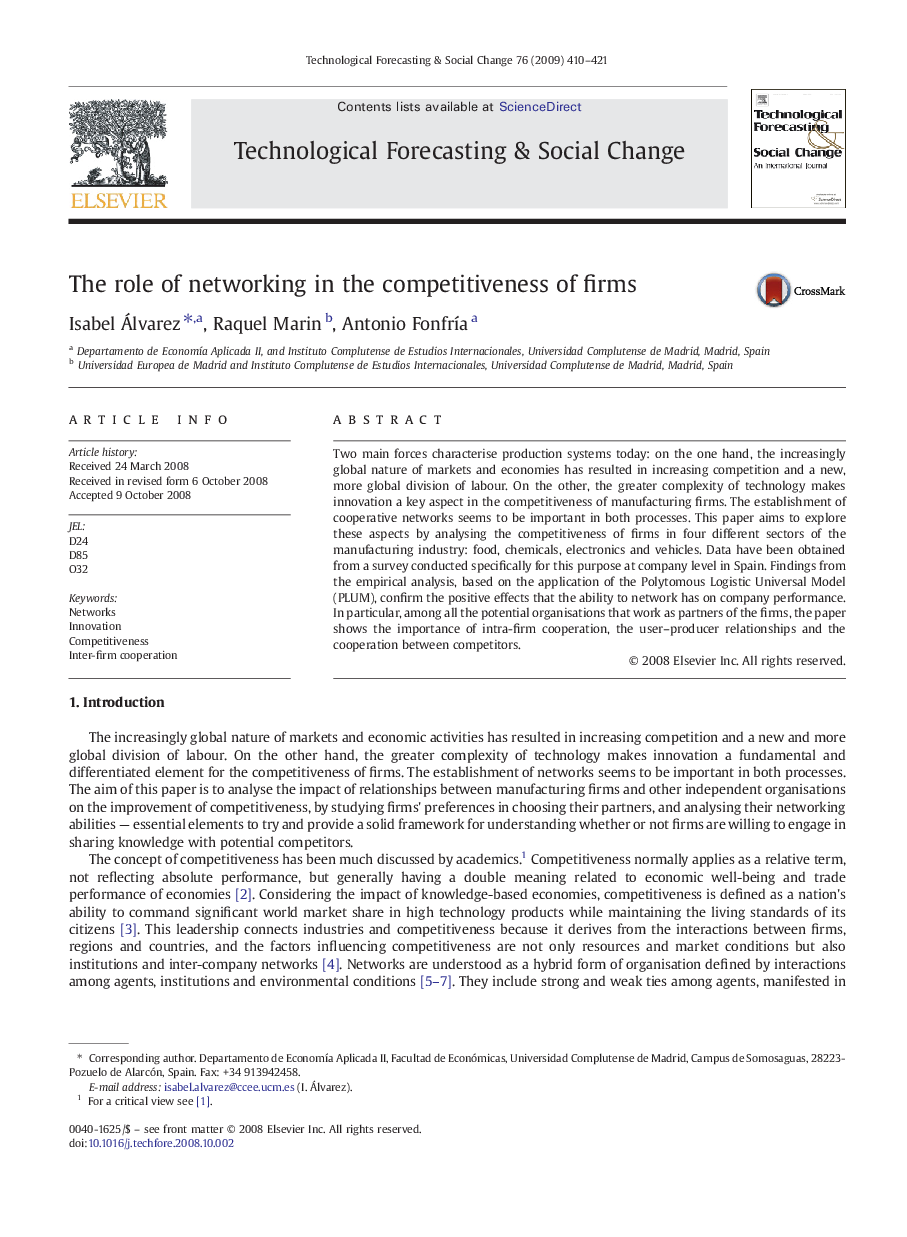| Article ID | Journal | Published Year | Pages | File Type |
|---|---|---|---|---|
| 897096 | Technological Forecasting and Social Change | 2009 | 12 Pages |
Two main forces characterise production systems today: on the one hand, the increasingly global nature of markets and economies has resulted in increasing competition and a new, more global division of labour. On the other, the greater complexity of technology makes innovation a key aspect in the competitiveness of manufacturing firms. The establishment of cooperative networks seems to be important in both processes. This paper aims to explore these aspects by analysing the competitiveness of firms in four different sectors of the manufacturing industry: food, chemicals, electronics and vehicles. Data have been obtained from a survey conducted specifically for this purpose at company level in Spain. Findings from the empirical analysis, based on the application of the Polytomous Logistic Universal Model (PLUM), confirm the positive effects that the ability to network has on company performance. In particular, among all the potential organisations that work as partners of the firms, the paper shows the importance of intra-firm cooperation, the user–producer relationships and the cooperation between competitors.
